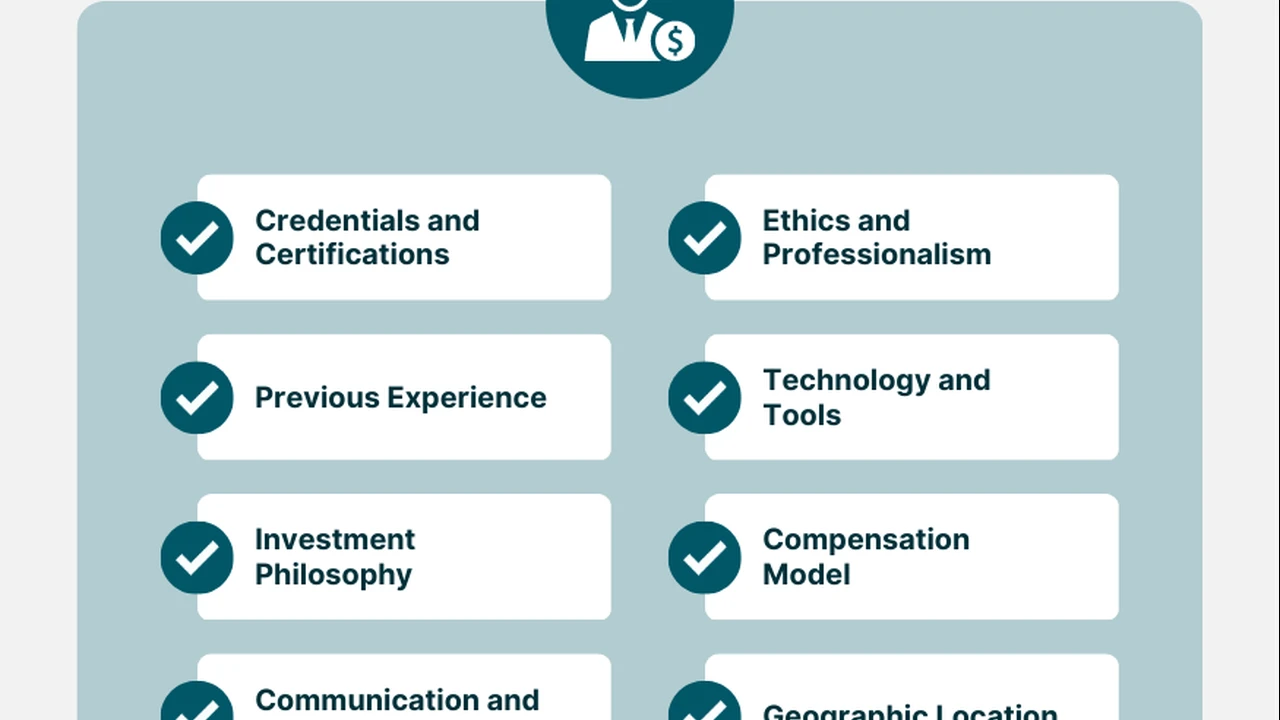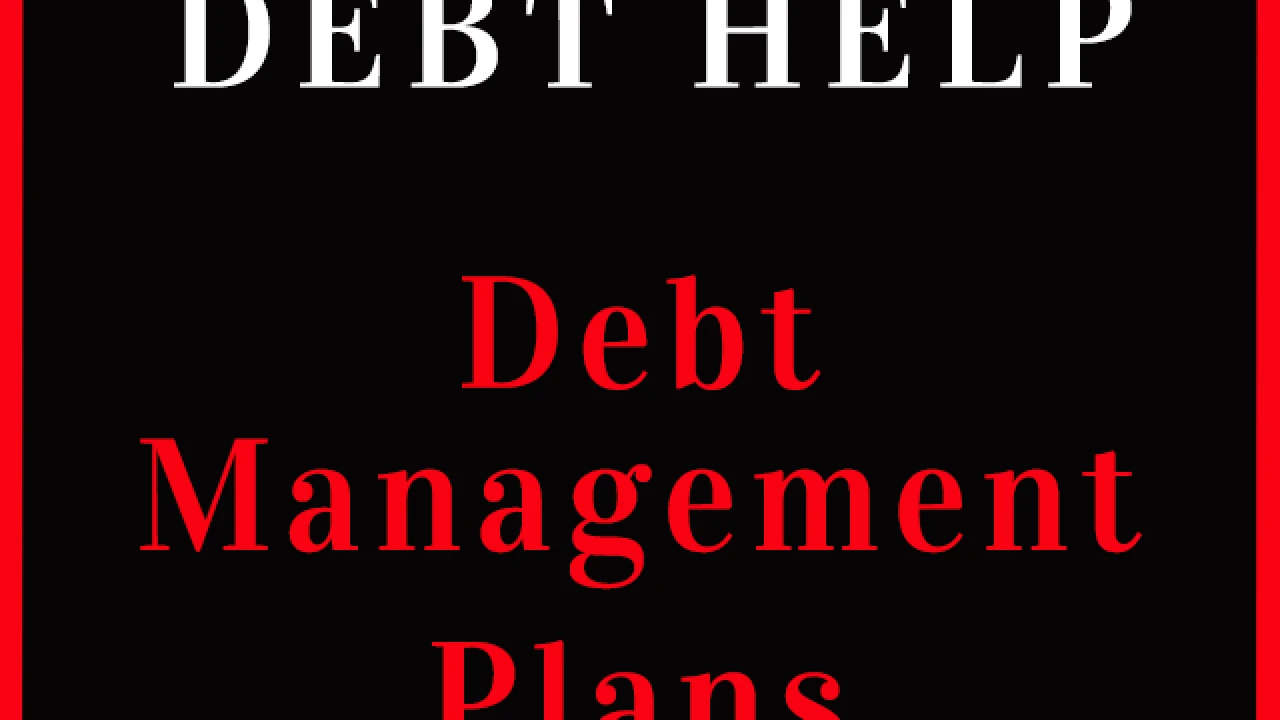Applying for a Mortgage What to Expect
A step-by-step guide to the mortgage application process and what lenders look for in borrowers.

Applying for a Mortgage What to Expect
A step-by-step guide to the mortgage application process and what lenders look for in borrowers.
Understanding the Mortgage Application Journey Your First Steps
So, you're thinking about buying a home? That's fantastic! It's a huge milestone, and getting a mortgage is often the biggest financial decision you'll ever make. Don't let that scare you, though. While the process can seem a bit daunting at first, especially with all the paperwork and jargon, it's totally manageable once you break it down. This guide is here to walk you through everything you need to know about applying for a mortgage, what lenders are really looking for, and how to make the whole experience as smooth as possible. We'll cover everything from getting your finances in order to closing on your dream home, including specific product recommendations and comparisons to help you make informed choices.
Pre-Approval vs Pre-Qualification Knowing the Difference for Homebuyers
Before you even start house hunting seriously, you'll hear terms like 'pre-qualification' and 'pre-approval.' It's crucial to understand the difference. Think of pre-qualification as a quick chat. You provide a lender with some basic financial information – your income, debts, and assets – and they give you an estimate of how much you might be able to borrow. It's a good starting point to get a ballpark figure, but it's not a commitment from the lender.
Pre-approval, on the other hand, is a much more robust process. This is where a lender actually verifies your financial information, pulls your credit report, and gives you a conditional commitment for a specific loan amount. Having a pre-approval letter in hand shows sellers that you're a serious and qualified buyer, which can give you a significant edge in a competitive market. Many real estate agents won't even show you homes until you have a pre-approval. It typically involves submitting documents like pay stubs, tax returns, and bank statements. The pre-approval usually lasts for 60 to 90 days, so keep an eye on the expiration date.
Gathering Your Financial Documents What Lenders Need to See
Get ready to open up your financial life! Lenders need a comprehensive picture of your financial health to assess your risk. The more organized you are with these documents, the faster and smoother your application process will be. Here's a checklist of what you'll typically need:
- Proof of Income: This usually means your last two years of W-2s or 1099s (if you're self-employed), and your most recent 30 days of pay stubs. If you're self-employed, expect to provide two years of personal and business tax returns.
- Proof of Assets: Bank statements (checking and savings) for the last two to three months, investment account statements, and any other documentation showing liquid assets. Lenders want to see you have enough for a down payment, closing costs, and reserves.
- Credit History: While the lender will pull your credit report, it's a good idea to check your own report beforehand for any errors. We'll dive deeper into credit scores shortly.
- Employment History: Lenders typically want to see a stable employment history, usually two years with the same employer or in the same line of work.
- Debt Information: Statements for all outstanding debts, including credit cards, student loans, car loans, and any other installment loans.
- Identification: A valid government-issued ID, like a driver's license or passport.
- Gift Letters (if applicable): If a portion of your down payment is a gift from a family member, you'll need a signed gift letter stating that the money is indeed a gift and not a loan.
Credit Score and History Why It Matters for Your Mortgage Rate
Your credit score is a huge factor in determining not only whether you'll get approved for a mortgage but also the interest rate you'll pay. Lenders use your FICO score (or sometimes VantageScore) to assess your creditworthiness. Generally, a higher credit score indicates a lower risk to the lender, which translates to a lower interest rate for you. This can save you tens of thousands of dollars over the life of your loan.
Most conventional loans require a minimum FICO score of around 620, but to get the best rates, you'll typically need a score of 740 or higher. Government-backed loans like FHA loans can be more lenient, sometimes accepting scores as low as 580 with a higher down payment. VA loans often don't have a strict minimum, but lenders will still look at your overall credit profile.
What do lenders look for in your credit history? They want to see a consistent pattern of on-time payments, a low credit utilization ratio (how much credit you're using compared to your available credit), and a diverse mix of credit accounts (credit cards, installment loans). Avoid opening new credit accounts or making large purchases on credit right before or during your mortgage application process, as this can negatively impact your score.
Debt to Income Ratio DTI Understanding Your Borrowing Power
Your Debt-to-Income (DTI) ratio is another critical metric lenders use. It's a comparison of your total monthly debt payments to your gross monthly income. There are two types of DTI:
- Front-End DTI (Housing Ratio): This compares your new monthly housing expenses (principal, interest, property taxes, and homeowner's insurance – often called PITI) to your gross monthly income. Lenders typically prefer this to be no more than 28% of your gross income.
- Back-End DTI (Total Debt Ratio): This includes your new housing expenses PLUS all your other monthly debt payments (credit cards, car loans, student loans, etc.) compared to your gross monthly income. Most lenders prefer this to be no more than 36% to 43%, though some programs might go higher.
For example, if your gross monthly income is $6,000 and your total monthly debt payments (including the new mortgage payment) are $2,000, your back-end DTI would be $2,000 / $6,000 = 33.3%. Keeping your DTI low shows lenders you have enough disposable income to comfortably afford your mortgage payments.
Choosing the Right Mortgage Loan Types and Options
This is where things can get a little complex, as there are many different types of mortgage loans available, each with its own pros and cons. The best choice for you depends on your financial situation, credit score, and long-term goals.
Conventional Loans The Most Common Choice
Conventional loans are not insured or guaranteed by the government. They are typically offered by private lenders and require good to excellent credit. You can often put down as little as 3% (though 20% avoids Private Mortgage Insurance, or PMI). These loans are great for borrowers with strong credit and stable income. Interest rates are generally competitive.
FHA Loans Great for First-Time Buyers and Lower Credit
Backed by the Federal Housing Administration, FHA loans are popular among first-time homebuyers or those with lower credit scores. They allow for a down payment as low as 3.5% and are more forgiving of past credit issues. However, they require both an upfront mortgage insurance premium (UFMIP) and annual mortgage insurance premiums (MIP) for the life of the loan, which can add to your monthly costs.
VA Loans Exclusive Benefits for Veterans
Guaranteed by the Department of Veterans Affairs, VA loans offer incredible benefits to eligible service members, veterans, and surviving spouses. The biggest perk? No down payment is required, and there's no private mortgage insurance. They also often come with competitive interest rates. Eligibility is key here, so check with the VA if you qualify.
USDA Loans Rural Homeownership Opportunities
These loans are backed by the U.S. Department of Agriculture and are designed to help low-to-moderate-income individuals purchase homes in eligible rural areas. Like VA loans, they often require no down payment. There are income limits and property location restrictions, so it's worth checking if you and your desired property qualify.
Adjustable-Rate Mortgages ARMs vs Fixed-Rate Mortgages
This is a big decision. A fixed-rate mortgage means your interest rate and monthly principal and interest payment remain the same for the entire life of the loan (e.g., 15-year or 30-year fixed). This offers stability and predictability. An adjustable-rate mortgage (ARM) starts with a lower, fixed interest rate for an initial period (e.g., 5, 7, or 10 years), after which the rate adjusts periodically based on market indexes. ARMs can offer lower initial payments but come with the risk of higher payments later if interest rates rise. They can be good for those who plan to sell or refinance before the adjustment period begins.
The Mortgage Application Process Step by Step Guide
Once you've got your documents in order and a pre-approval in hand, the real application process begins after you've found a home and your offer is accepted. Here's a typical timeline:
- Submit Your Full Application: You'll complete a detailed loan application (Form 1003) with your chosen lender. This is where all those documents you gathered come into play.
- Lock in Your Interest Rate: Once your offer is accepted, you'll typically have the option to 'lock in' your interest rate. This protects you from rate increases during the underwriting process. Rate locks usually last 30-60 days.
- Underwriting: This is where the lender thoroughly reviews all your financial information, credit history, and the property details. They're looking to ensure you meet all their lending criteria. This stage can feel like a black box, but it's essential.
- Appraisal: The lender will order an appraisal of the property to ensure its value supports the loan amount. This protects both you and the lender.
- Home Inspection: While not required by the lender, a home inspection is highly recommended for your own peace of mind. It uncovers potential issues with the property.
- Conditional Approval: The underwriter might come back with conditions – requests for additional documents or explanations. Respond to these promptly.
- Final Approval: Once all conditions are met, you'll receive final approval! This is a huge relief.
- Closing Disclosure: At least three business days before closing, you'll receive a Closing Disclosure (CD) outlining all the final loan terms, fees, and costs. Review this carefully and compare it to your Loan Estimate.
- Closing: The big day! You'll sign a mountain of paperwork, pay your closing costs, and officially become a homeowner.
What Lenders Look For Beyond the Numbers Your Profile
While numbers like credit score and DTI are crucial, lenders also consider your overall profile. They want to see stability and a low-risk borrower. This includes:
- Employment Stability: A consistent work history, ideally with the same employer or in the same field for at least two years, signals reliable income.
- Reserves: Having extra cash in savings after your down payment and closing costs shows you can handle unexpected expenses without defaulting on your mortgage.
- Source of Down Payment: Lenders want to ensure your down payment comes from legitimate sources and isn't a new loan you'll struggle to repay.
- Past Financial Behavior: While a low credit score is a red flag, a history of responsible financial management, even with some past hiccups, can be viewed positively if you've shown improvement.
Common Mortgage Application Pitfalls How to Avoid Delays
The mortgage process can be stressful enough without unnecessary delays. Here are some common mistakes to avoid:
- Making Large Purchases: Don't buy a new car, furniture, or open new credit cards during the application process. This can change your DTI and credit score.
- Changing Jobs: A significant change in employment can disrupt the underwriting process, especially if it involves a different industry or a pay cut.
- Depositing Large Undocumented Sums: If you receive a large sum of money, make sure you can document its source. Lenders are wary of 'unexplained deposits.'
- Ignoring Lender Requests: Respond to all requests for documents or information from your lender promptly. Delays on your part will delay your closing.
- Not Shopping Around: Don't just go with the first lender you talk to. Compare offers from at least three to five lenders to find the best rates and terms.
Recommended Mortgage Lenders and Platforms A Comparative Look
Choosing the right lender is almost as important as choosing the right loan. Here are a few highly-rated options, keeping in mind that rates and services can vary based on your location and specific financial profile. Always get personalized quotes!
Traditional Banks and Credit Unions
- Chase Bank: A large national bank offering a wide range of mortgage products, including conventional, FHA, and VA loans. They have a strong branch presence for in-person support. Their online application process is robust, and they often have competitive rates for existing customers.
- Wells Fargo: Another major player with extensive mortgage offerings. They are known for their diverse loan products and customer service, though their online experience can sometimes be less streamlined than digital-first lenders.
- Local Credit Unions: Often provide more personalized service and potentially lower fees or better rates for members. Examples include Navy Federal Credit Union (excellent for military members and their families) or local credit unions specific to your region. They might be more flexible with unique financial situations.
Online Lenders and Mortgage Brokers
- Rocket Mortgage (Quicken Loans): One of the largest online mortgage lenders, known for its user-friendly digital platform and quick approval process. They offer conventional, FHA, and VA loans. Their 'Rocket Mortgage' app makes the application very intuitive. They might be a good fit for tech-savvy borrowers who prefer a streamlined, mostly online experience.
- Better.com: A fully digital lender aiming to simplify the mortgage process with no commissions or lender fees. They offer competitive rates and a fast closing process. Ideal for those who want a completely online, efficient experience and are comfortable with minimal human interaction.
- LoanDepot: A hybrid lender with both an online presence and physical branches. They offer a wide array of loan products and are known for their competitive rates and technology-driven process. They can be a good middle ground for those who want online convenience but also access to human support.
- Mortgage Brokers: These professionals work with multiple lenders to find you the best deal. They can be invaluable if you have a complex financial situation or want someone to shop around for you. They earn a commission, either from the lender or from you, so understand their fee structure upfront.
Comparative Scenarios and Pricing Considerations
Let's consider a hypothetical scenario:
Borrower Profile: First-time homebuyer, FICO score 720, $70,000 annual income, $10,000 in credit card debt, looking for a $250,000 home with a 5% down payment.
- Conventional Loan (e.g., Chase Bank): With a 5% down payment ($12,500), you'd need to pay PMI. Interest rate might be around 6.8% (as of early 2024, rates fluctuate). Monthly payment (PITI + PMI) could be around $1,900 - $2,000.
- FHA Loan (e.g., Rocket Mortgage): With a 3.5% down payment ($8,750), the interest rate might be slightly lower, say 6.5%, but you'd have the upfront MIP (1.75% of loan amount, often financed) and annual MIP (0.55% of loan amount). Monthly payment (PITI + MIP) could be similar or slightly higher than conventional due to MIP, perhaps $1,950 - $2,050.
- Local Credit Union: They might offer a slightly lower interest rate (e.g., 6.6%) and potentially lower closing costs for members, especially if you have a long-standing relationship. Their underwriting might be more flexible if your DTI is slightly higher but you have strong reserves.
Key Takeaway: Always get at least three to five quotes. Don't just look at the interest rate; compare the Annual Percentage Rate (APR), which includes fees, and the total closing costs. A slightly higher interest rate with lower closing costs might be better for you if you plan to refinance or sell in a few years.
Closing Costs and Beyond What to Budget For
The down payment isn't the only upfront cost. You'll also need to budget for closing costs, which typically range from 2% to 5% of the loan amount. These can include:
- Lender Fees: Origination fees, underwriting fees, processing fees.
- Third-Party Fees: Appraisal fees, credit report fees, title insurance, attorney fees, recording fees.
- Prepaid Expenses: Property taxes, homeowner's insurance premiums for the first year, and sometimes interest for the remainder of the month you close.
Some lenders offer 'no closing cost' loans, but beware – these usually come with a higher interest rate to cover the fees. It's often better to pay the closing costs upfront if you can, as it saves you money over the life of the loan.
After the Application What Happens Next and Staying Prepared
Once you've submitted your application, it's not a time to sit back and relax completely. Stay responsive to your lender's requests. They might ask for updated pay stubs or bank statements as your closing date approaches. Avoid making any major financial changes until after you've closed on your home. This includes changing jobs, taking out new loans, or making large purchases on credit. Any of these actions could jeopardize your loan approval.
Keep an eye on your email and phone for communications from your loan officer or processor. The more proactive and organized you are, the smoother the journey to homeownership will be. Remember, the goal is to get you into your new home, and your lender is a partner in that process.
Final Thoughts on Your Mortgage Journey Securing Your Dream Home
Applying for a mortgage is a significant undertaking, but with careful preparation and a clear understanding of the process, it doesn't have to be overwhelming. By getting your finances in order, understanding what lenders look for, and choosing the right loan and lender for your situation, you'll be well on your way to securing the financing for your dream home. Good luck, and happy house hunting!
:max_bytes(150000):strip_icc()/277019-baked-pork-chops-with-cream-of-mushroom-soup-DDMFS-beauty-4x3-BG-7505-5762b731cf30447d9cbbbbbf387beafa.jpg)






